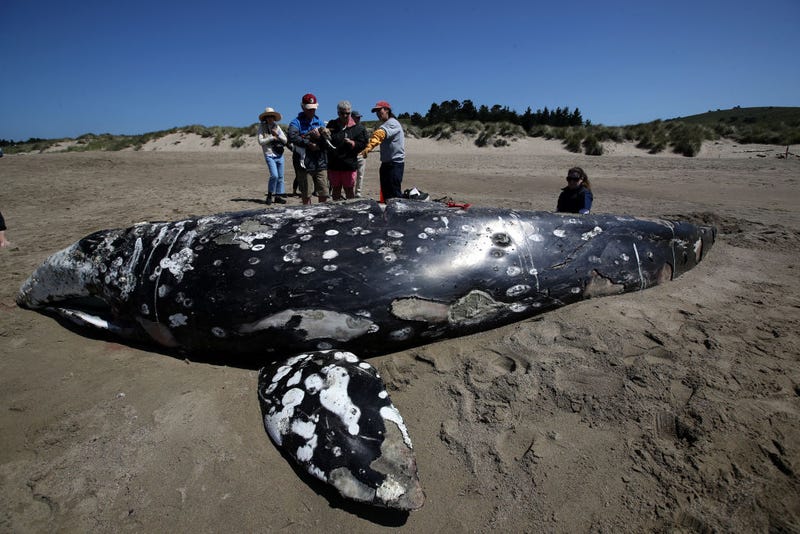
On Monday a dead whale was found floating in the surf at Ocean Beach.
But experts are unsure as to why the whale died or how it wound up on San Francisco's shores. Following a necropsy that same afternoon, scientists couldn't determine the cause of death, but took samples of the whale for more testing.
Scientists said the whale was a 45-foot adult female whose body condition was average based on blubber layer and fat stores.
The whale had multiple fractured spinal vertebrae, but it was not bruised or hemorrhaging so scientists believe it was hit by a ship after it was already dead.
There was very little food in the whale's stomach. And the experts said the whale was heading north to the Arctic late in the season.
This is the 17th found around the Bay Area this year, according to KGO.
In April, four were found on shores in one week alone.
But while many might view the dead mammals as a sign of unhealthy oceans, or other omens, scientists are not that concerned, according to recent reporting by The Guardian.
Some marine researchers believe the deaths may be merely cyclical.
"At first glance, it sounds horrific," said Joshua Stewart, a research associate with the National Oceanic and Atmospheric Administration. "But this is not an isolated event and to some extent that puts me at ease, personally."
The gray whale population on the west coast has dropped by roughly 24% since 2016.
But Stewart, who tracks gray whale population numbers said the population is still close to an all-time high. "Despite these downturns that, at the time, are very distressing, they have bounced back multiple times," he said, adding that they are a highly adaptable and resilient species.
Causes of these untimely deaths are varied and unclear. Whales may be traveling closer to the coast, putting them at higher risk of being hit by ships, disturbances from loud noises from ports, or chemical pollution and entanglement, according to a 2019 study from Scripps Institution of Oceanography at the University of California, San Diego.

